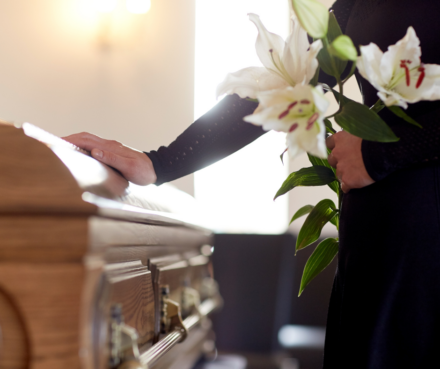
Who is responsible for organising and paying for a funeral?
20th October 2022 by Kate Mansfield
After a death, one of the first tasks is to arrange the funeral. This is generally carried out by the deceased’s next of kin, whether or not they are an executor to the estate. We take a look at the legal position and who is required to pay for the funeral.
In some cases, it may be fairly obvious who will take charge of funeral arrangements after a death. For example, if an older person dies and does not leave a spouse but names their son or daughter as their executor, the son or daughter would normally be the one to deal with the funeral. However, if the executor is not the deceased’s closest relative, then the executor might not be the best person to make the arrangements.
Who can make the funeral arrangements?
The deceased’s executor has the authority to make funeral arrangements, but in some cases other family members may be better placed to deal with matters. For example, the executor may be a professional such as a solicitor or bank. Where the executor is agreeable, it is acceptable for others to make the arrangements.
If the deceased did not leave a Will, then their next of kin who are entitled to be the estate administrator can deal with the funeral. The Rules of Intestacy determine who inherits the estate in order of preference and it is usually one of these individuals who would put themselves forward to be the administrator.
Communication is very important when dealing with funeral arrangements to ensure that everyone understands what will happen and to allow all of the deceased’s family to have their say. Emotions run high after a death and if individuals feel excluded, it could potentially cause ill-feeling and even a dispute.
Who is responsible for paying for a funeral?
Funeral costs are usually ultimately paid from the deceased’s estate, but all of the expenses will need to be paid upfront before estate funds are available. The funeral home and other organisations such as caterers, venues and florists will require payment at the time they are booked. The person doing the booking and signing the contract will be responsible for paying.
They should keep all of the receipts so that a claim can be made against the estate in due course.
How to pay for a funeral
Some people may have a pre-paid funeral plan in place, which will cover some of the costs. If the executor or other person making the arrangements is not able to pay, then the executor or administrator can ask the deceased’s bank to pay the funeral director, if there is sufficient money in the account.
Most banks will release money to pay for a funeral or pay the funeral home directly. Alternatively, the deceased may have had a life policy in place which might be accessible for funeral expenses.
Funeral wishes
The deceased may have left funeral wishes, either in their Will or other separate document. This can be very reassuring and helpful for their loved ones, who will be able to make arrangements knowing that it is what their relative would have wanted. Funeral wishes are not legally binding however, meaning that the executor does not have to follow the directions exactly, for example, if it is more practical to make different decisions.
Contact us
If you have any further questions relating to funerals please contact a member of Laceys Wills, Probate and Trusts team on 01202 377984.



